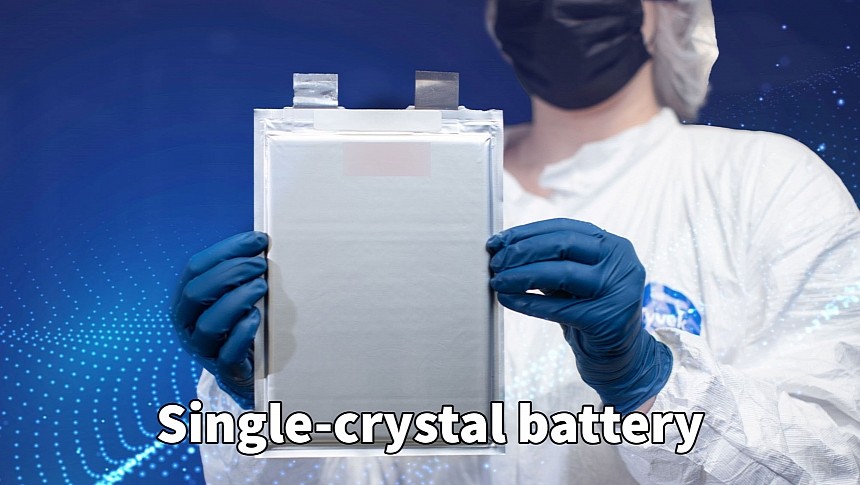Jeff Dahn's battery lab at Dalhousie University in Halifax, Canada, known for its Tesla ties, is working on a new Li-ion battery chemistry. The new battery cell will use a single-crystal, cobalt-free cathode with Tungsten doping for increased performance and a much longer lifecycle.
Tesla is considered one of the most advanced companies in Li-ion battery technology. The battery cells installed in its vehicles are among the best performing and durable on the market. Few know that Tesla owes many technological achievements in this area to Jeff Dahn, a pioneer of Li-ion battery development. Dahn started working on Li-ion batteries in the late 1970s and now leads a battery research lab at Dalhousie University in Halifax, Canada.
Dahn and his team have strong ties with Tesla thanks to a partnership agreement signed in 2015. Since 2016, Tesla has funded several battery-research works at Dalhousie. At least six of Tesla's Li-ion battery patent applications list Dahn and his team members as co-inventors. We could soon add another one to this list if Dahn succeeds in turning its latest research into a commercial product.
According to a paper published in the Journal of Electrochemical Society, Jeff Dahn and his team is working on a unique type of single-crystal cathode that contains no cobalt. Single-crystal electrodes are known to have longer lifecycles than their polycrystalline counterparts in an NMC cell. The reason is that polycrystalline materials develop particle microcracking, which significantly reduces a cell's life. Single-crystal materials show little microcracking present even after more than 1,000 cycles.
Still, they are very expensive, accounting for 76% of the cost of the overall cell and 55% of the battery pack. This represents a serious barrier to adopting single-crystal electrodes on a commercial scale. Here enter scene Dahn and his team with a solution to reduce costs by eliminating expensive cobalt from the chemistry.
The result is a cobalt-free, single crystal layered-oxide positive electrode material, referred to as NM64, because it contains 60% Nickel and 40% Manganese. Tesla is now using an NMC811 chemistry, so reducing the nickel amount from 80% to 60% can further lower costs.
Intriguingly, the single-crystal NM64 cathode is produced with a simple all-dry synthesis process that requires no water, no intermediate chemicals, and produces little waste. This differs from the dry electrode process developed by Tesla for the 4680 cells. According to the research, the cell has excellent high-voltage stability up to 4.4 volts. The study also found that adding a 0.3% tungsten coating to the cathode improves cycling stability.
The new cathode material is straightforward to produce, and current commercial manufacturing facilities can adopt the process relatively easily. This should reduce the complexity, cost, and time needed to manufacture the cathode. The research shows there's still life in the old liquid-electrolyte Li-ion batteries, despite everyone hyping the solid-state cells. Still, it may take a while to see this technology in a Tesla EV.
Dahn and his team have strong ties with Tesla thanks to a partnership agreement signed in 2015. Since 2016, Tesla has funded several battery-research works at Dalhousie. At least six of Tesla's Li-ion battery patent applications list Dahn and his team members as co-inventors. We could soon add another one to this list if Dahn succeeds in turning its latest research into a commercial product.
According to a paper published in the Journal of Electrochemical Society, Jeff Dahn and his team is working on a unique type of single-crystal cathode that contains no cobalt. Single-crystal electrodes are known to have longer lifecycles than their polycrystalline counterparts in an NMC cell. The reason is that polycrystalline materials develop particle microcracking, which significantly reduces a cell's life. Single-crystal materials show little microcracking present even after more than 1,000 cycles.
Still, they are very expensive, accounting for 76% of the cost of the overall cell and 55% of the battery pack. This represents a serious barrier to adopting single-crystal electrodes on a commercial scale. Here enter scene Dahn and his team with a solution to reduce costs by eliminating expensive cobalt from the chemistry.
The result is a cobalt-free, single crystal layered-oxide positive electrode material, referred to as NM64, because it contains 60% Nickel and 40% Manganese. Tesla is now using an NMC811 chemistry, so reducing the nickel amount from 80% to 60% can further lower costs.
Intriguingly, the single-crystal NM64 cathode is produced with a simple all-dry synthesis process that requires no water, no intermediate chemicals, and produces little waste. This differs from the dry electrode process developed by Tesla for the 4680 cells. According to the research, the cell has excellent high-voltage stability up to 4.4 volts. The study also found that adding a 0.3% tungsten coating to the cathode improves cycling stability.
The new cathode material is straightforward to produce, and current commercial manufacturing facilities can adopt the process relatively easily. This should reduce the complexity, cost, and time needed to manufacture the cathode. The research shows there's still life in the old liquid-electrolyte Li-ion batteries, despite everyone hyping the solid-state cells. Still, it may take a while to see this technology in a Tesla EV.






